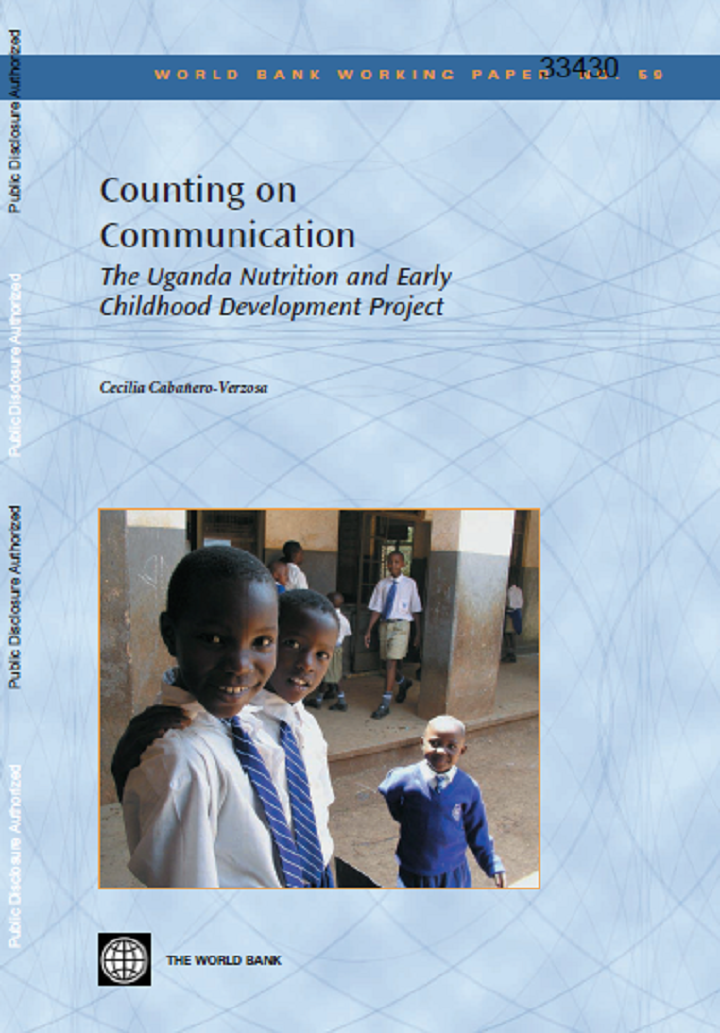Counting on Communication: The Uganda Nutrition and Early Childhood Development Project Cabañero-Verzosa, C. (2005)
The Uganda Nutrition and Early Childhood Development Project was one of the World Bank's first projects to demonstrate the value-added of strategic communication. The strategic communication component developed for this project included the use of formative research about values and attitudes with respect to child rearing, in order to develop and test effective messages. The communication strategy was developed in a highly participatory manner and included nurturing a team of champions for the project among policymakers, district officials, community leaders, and grassroots organizations to advocate for the project. It also included two-way communication activities developed to address the practices and behaviors that would need to be changed in order for the project to be successful, rather than merely disseminating messages based on assumptions of project benefits. This publication is the first in a series of Working Papers sponsored by the Development Communication Division (DevComm) of the World Bank's External Affairs Vice-Presidency. This series is designed to share innovations and lessons learned in the application of strategic communication in development projects. Together with other donors, NGOs, and private sector partners, DevComm seeks to mainstream the discipline of development communication in development practice.
Bibliographic information
Cabañero-Verzosa, C. (2005). Counting on Communication: The Uganda Nutrition and Early Childhood Development Project The World Bank
Filter / Tags
Case studies in other formatsEnglish
Downloads
Counting on Communication: The Uganda Nutrition and Early Childhood Development Project.
Type: application/pdf
Size: 1.16 MB

